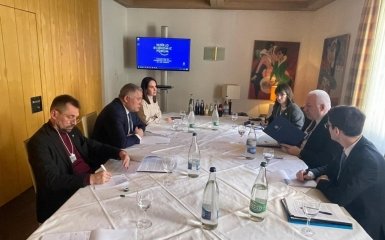On the sidelines of the fourth meeting of national security advisers on the "peace formula" in Davos, Ukraine began negotiations with Romania on the conclusion of a bilateral security agreement.
Ukraine is negotiating with Romania: what is known
The negotiations in Davos took place with the participation of the head of the Office of the President of Ukraine, Andriy Yermak, and the Secretary of State of the Romanian MFA, Julian Fota.
The Office of the President of Ukraine (OPU) press service announced this on January 14 on Facebook.
Negotiations were started to fulfil President Volodymyr Zelenskyy's mandate within the framework of the G7 Joint Declaration on Support for Ukraine. They marked the elevation of bilateral relations to the level of strategic partnership.
Romania became the ninth country to start bilateral security talks with Ukraine. It reaffirmed its steadfast support for Ukraine's independence, territorial integrity, and the European and Euro-Atlantic path.
Without Romania, it is impossible to imagine full-fledged security guarantees in Europe, in particular in the Black Sea region, the deputy head of the OPU Ihor Zhovkva noted.
The deputy chief of Ukrainian MFA, Mykola Tochytskyi, expressed gratitude to Romania and the Romanian people for Ukraine's constant assistance.
The parties discussed the main elements of the future bilateral security agreement and agreed on the modalities of further negotiations.
Security agreement between Ukraine and Great Britain
During the visit of British Prime Minister Rishi Sunak to Kyiv on January 12, a bilateral security agreement was signed between Great Britain and Ukraine, which will be valid until Ukraine joins NATO.
This security agreement was the first among those that Ukraine hopes to conclude with its partners.
The agreement pres for intelligence sharing, cyber security, medical and military training, and defence and industrial cooperation.
More on the topic
- Category
- Economics
- Publication date
- Додати до обраного


